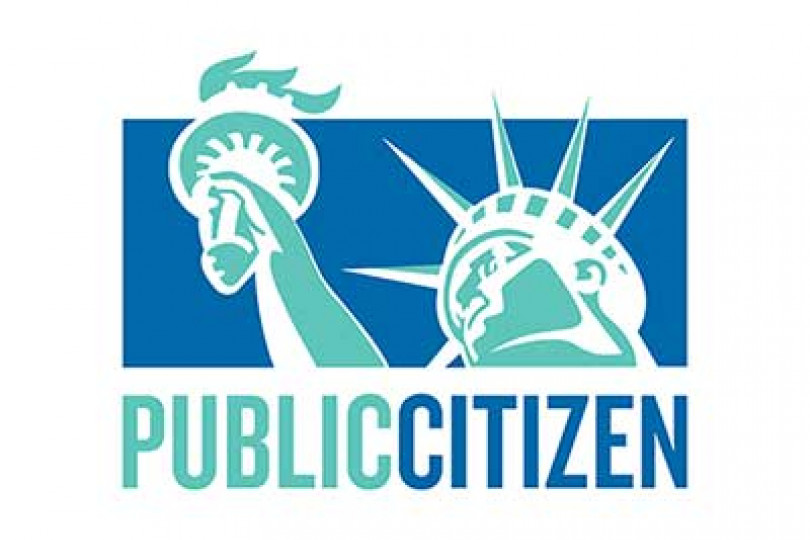Move proves trade pacts harm public interest
WASHINGTON, Dec. 18, 2015 - Congress’ elimination of country-of-origin meat labels (COOL) for pork and beef that consumers rely on to make informed choices about their food is a glaring example of how trade agreements can undermine U.S. public interest policies, Public Citizen reported today.
A week after the World Trade Organization (WTO) approved $1 billion in annual trade sanctions against the United States unless and until the policy was terminated, a provision to kill the popular consumer labels for beef and pork was tucked into the omnibus package passed today. Three weeks ago, the WTO also issued a final ruling against U.S. dolphin-safe tuna labels, ordering the elimination of the popular environmental policy.
Claims that trade pacts cannot harm U.S. consumer and environmental policies are a mainstay of the administration’s effort to build support for the Trans-Pacific Partnership (TPP), which faces opposition from an unprecedentedly diverse coalition of organizations and members of Congress.
In his May 2015 speech at Nike headquarters, President Barack Obama said that critics’ warning that the TPP could “undermine American regulation – food safety, worker safety, even financial regulations” was “just not true.” He said: “They’re making this stuff up. No trade agreement is going to force us to change our laws.”
“Today’s elimination under orders by the WTO of consumer labels we all rely on in the grocery store makes clear that trade agreements can – and do – threaten even the most favored U.S. consumer protections,” said Lori Wallach, director of Public Citizen’s Global Trade Watch.
“The omnibus included a dangerous rider that will gut our nation’s mandatory Country of Origin Labeling laws. This is wrong. We cannot let trade agreements change our rigorous standards - something that will only become more commonplace under the proposed Trans-Pacific Partnership,” said U.S. Rep. Rosa DeLauro (D-Conn.), a leading congressional advocate for consumer protection and food safety.
Implementation of the TPP would dramatically increase the prospect of U.S. public interest policies being undermined. The TPP includes constraints on food safety that extend beyond the WTO. The pact would roll back the environmental standards included even in George W. Bush’s trade pacts and would empower individual foreign corporations directly to launch attacks on public interest policies using the TPP’s controversial investor-state dispute settlement regime.
“These WTO rulings should unite lovers of Flipper and haters of mystery meat with the majority of Americans whose jobs and wages would be undermined by the TPP to ensure Congress does not approve the pact,” Wallach said.
Today’s congressional action is not a first. In response to previous WTO rulings, the United States has rolled back U.S. Clean Air Act regulations on gasoline cleanliness rules successfully challenged by Venezuela and Mexico and Endangered Species Act rules relating to shrimping techniques that kill sea turtles after a successful challenge by Malaysia and other nations. The U.S. also altered auto fuel efficiency (Corporate Average Fuel Economy) standards that were successfully challenged by the European Union.
After the final WTO merits ruling against COOL in May, Obama’s Agriculture Secretary Tom Vilsack also contradicted Obama’s claim that trade pacts cannot undermine domestic consumer policies, announcing: “Congress has got to fix this problem. They either have to repeal or modify and amend it.”
COOL requires meat sold in the United States to be labeled to inform consumers about the country in which animals were born, raised and slaughtered. COOL is supported by 90 percent of Americans, according to a recent poll, but has been under attack by Mexican and Canadian livestock producers and the U.S. meat processing industry.
The Canadian and Mexican governments challenged the policy and in 2011 won an initial WTO ruling. In 2013, the Obama administration altered COOL to remedy the WTO violations. The new rules provided consumers more information. Mexico and Canada had sought to weaken COOL and obtained a WTO ruling against the new policy and then authorization to impose more than $1 billion in trade sanctions annually against the United States until it weakened or ended COOL.
Background: Congress enacted mandatory country-of-origin labeling for meat in the 2008 farm bill. This occurred after 50 years of U.S. government experimentation with voluntary labeling and efforts by U.S. consumer groups to institute a mandatory program.
Canada and Mexico claimed that the program violated WTO limits on what sorts of product-related “technical regulations” WTO signatory countries are permitted to enact. In November 2011, the WTO issued an initial ruling against COOL. Canada and Mexico demanded that the United States drop its mandatory labels and return to a voluntary program that would not provide U.S. consumers the same level of information as the current labels. The United States appealed.
In June 2012, the WTO Appellate Body affirmed that COOL violated WTO rules. In response, the U.S. government altered the policy. However, instead of watering down the popular program as Mexico and Canada sought, the U.S. Department of Agriculture’s new May 2013 rule strengthened the labeling regime. By providing more information to consumers, the new rule remedied the violations cited in the WTO ruling. Mexico and Canada then challenged the new U.S. policy. In May 2015, the WTO ruled that the new U.S. policy still violated WTO rules. Mexico and Canada initiated a WTO process to determine the level of trade sanctions that they could impose on the United States until it eliminated or weakened COOL.
Public Citizen is a national, nonprofit consumer advocacy organization founded in 1971 to represent consumer interests in Congress, the executive branch and the courts.






